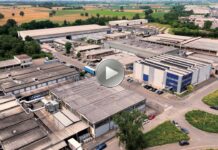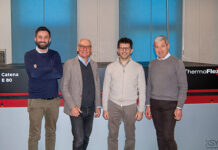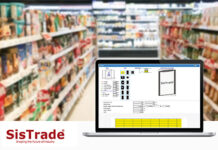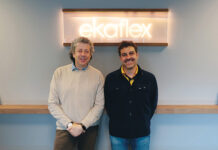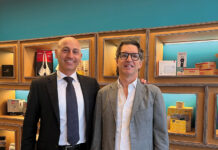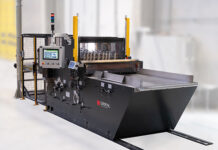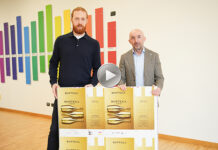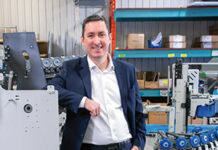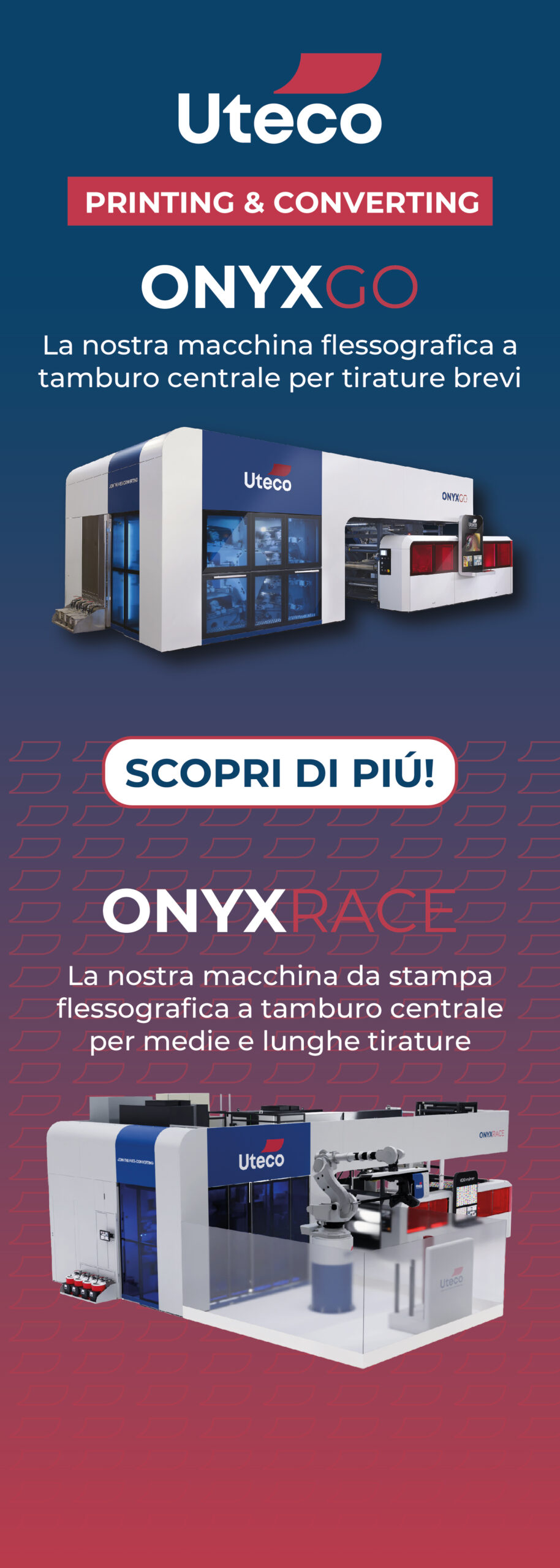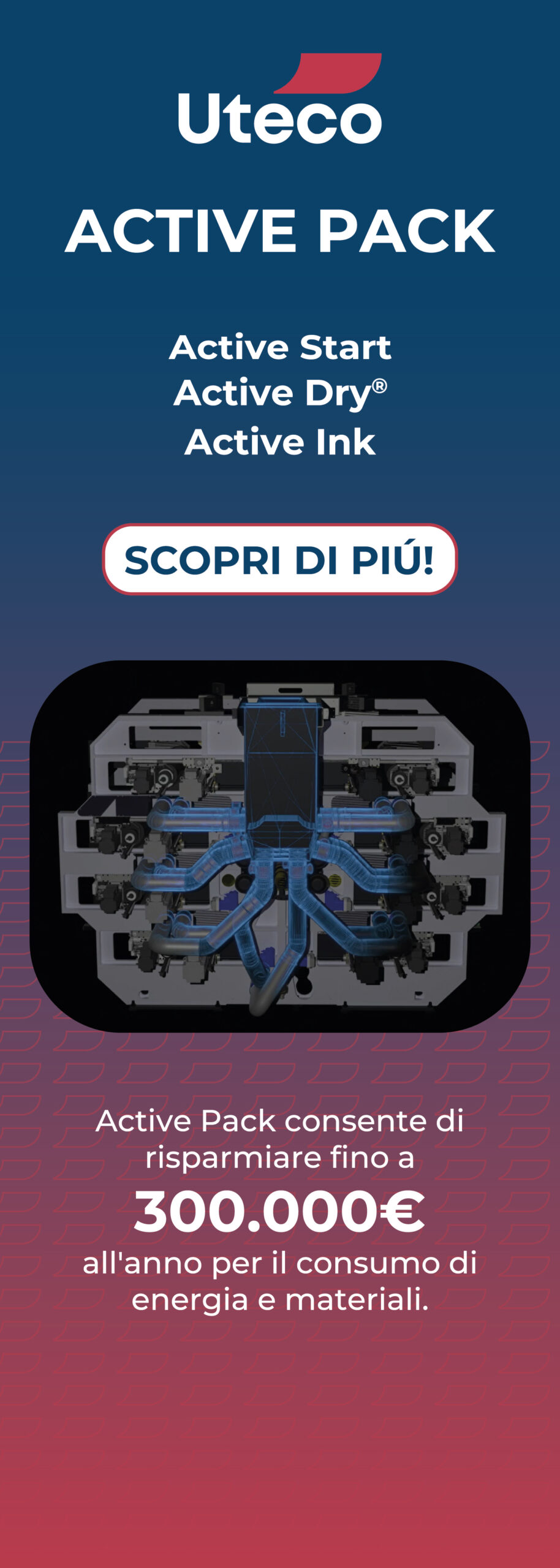With the recent installation of the new Hell Gravure Cellaxy V5 XL system, ICR (Incisioni Cilindri Rotocalco) takes a decisive step in the direct laser engraving of gravure cylinders. In particular, the investment was decided to fill a market gap in Italy in the tissue sector, without obviously neglecting flexible packaging.
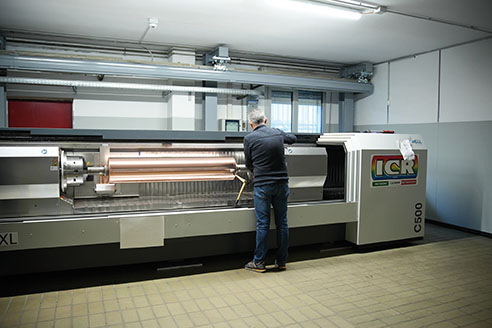
ICR has always been a point of reference for the gravure sector in Italy, a company where tradition and innovation are two sides of the same coin, and where the passion for printing of Mario Maggioni, heart and soul of this company, has today been transmitted and is carried forward thanks to his daughter Laura and his nephew Gianmatteo, who takes care of the commercial side and has also been very active at an associative level in recent years as coordinator of the Italian Gravure Group of Acimga.
The attention of gravure industry has been focused for some years on the research for alternatives to the use of hexavalent chromium, which will soon be banned due to its high environmental impact and its repercussions on the healthiness of working environments.
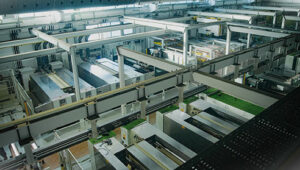 “There is a project by Hell-Gravure System which involves coating the cylinders with an epoxy resin, which after appropriate turning, smoothing and polishing can be laser engraved”, begins Mario, underlining how the future of gravure industry is heading towards elimination of galvanic processes, which will most likely be replaced by polyurethane materials, even if the moment of the definitive transition has not yet arrived. In this sense, Rossini’s Ecograv project is also worth mentioning, which involves coating the cylinder with a technopolymer which is then engraved electromechanically.
“There is a project by Hell-Gravure System which involves coating the cylinders with an epoxy resin, which after appropriate turning, smoothing and polishing can be laser engraved”, begins Mario, underlining how the future of gravure industry is heading towards elimination of galvanic processes, which will most likely be replaced by polyurethane materials, even if the moment of the definitive transition has not yet arrived. In this sense, Rossini’s Ecograv project is also worth mentioning, which involves coating the cylinder with a technopolymer which is then engraved electromechanically.
Let us not forget that today the gravure cylinder is a guarantee of circular economy, as the matrix itself has “eternal” life since it is steel on which is deposited copper, which then is engraved and at the end of its use is recovered for use in other industries.
“The cylinder production process requires a series of attentions and procedures, and at ICR we are also well ahead of current regulations”, intervenes Gianmatteo.
The new Cellaxy and laser finishing
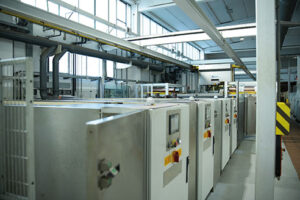 Cellaxy V5 XL is the most advanced direct laser engraving machine on any type of metal. It is a highly qualitative system for gravure printing, but not only that, in fact the laser beam can be used for flexible packaging, embossing at various levels and special applications, including eco-sustainable ones on single-layer materials such as HelioPearl.
Cellaxy V5 XL is the most advanced direct laser engraving machine on any type of metal. It is a highly qualitative system for gravure printing, but not only that, in fact the laser beam can be used for flexible packaging, embossing at various levels and special applications, including eco-sustainable ones on single-layer materials such as HelioPearl.
The application in tissue is particularly interesting, a very important market for Italy, where, however, to date few have proposed to offer laser-engraved embossing cylinders. “We have also brought our gravure culture to the sector of embossing cylinders for tissue products, with precision and quality combined with a production timescale that has no equal on the current market”, intervenes Gianmatteo.
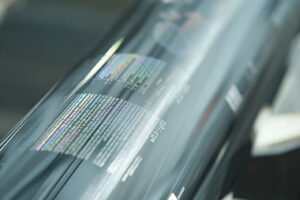 Furthermore, the investment also included the inclusion of a new post-engraving copper finishing equipment. When the engraving of the gravure cylinder takes place on steel, once the engraving is finished, sandblasting and eventually chrome plating are carried out but the processing is practically completed; however, when copper is processed there is a need for a further finishing step, which ICR has recently included in its production department. The copper finishing equipment is in fact necessary precisely due to the intrinsic characteristics of this material, which does not allow the removal of all the engraving waste. So, the removing occurs with the use of a dedicated process, completing the production cycle of the copper-based cylinders which will thus be clean. Direct laser engraving can also be integrated with other technologies present in the company. “We know that there are companies that have installed this laser engraving system and have obtained engravings that allow them to save ink, guaranteeing the same coverage, for example for white. In this case the printing cylinders could be engraved with the electromechanical process while the white cylinder with laser. “The electromechanical engraving, in fact, creates pyramidal cells and the bottom of them is never completely discharged, while with the new Cellaxy, but also with the autotypical engraving with Exactus laser exposure, the bottom of the cell is rounded like a ladle that helps the ink flow from the cell to the print substrate”, adds Mario.
Furthermore, the investment also included the inclusion of a new post-engraving copper finishing equipment. When the engraving of the gravure cylinder takes place on steel, once the engraving is finished, sandblasting and eventually chrome plating are carried out but the processing is practically completed; however, when copper is processed there is a need for a further finishing step, which ICR has recently included in its production department. The copper finishing equipment is in fact necessary precisely due to the intrinsic characteristics of this material, which does not allow the removal of all the engraving waste. So, the removing occurs with the use of a dedicated process, completing the production cycle of the copper-based cylinders which will thus be clean. Direct laser engraving can also be integrated with other technologies present in the company. “We know that there are companies that have installed this laser engraving system and have obtained engravings that allow them to save ink, guaranteeing the same coverage, for example for white. In this case the printing cylinders could be engraved with the electromechanical process while the white cylinder with laser. “The electromechanical engraving, in fact, creates pyramidal cells and the bottom of them is never completely discharged, while with the new Cellaxy, but also with the autotypical engraving with Exactus laser exposure, the bottom of the cell is rounded like a ladle that helps the ink flow from the cell to the print substrate”, adds Mario.
The importance of automation in cylinder production
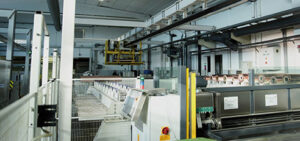 In addition to a cutting-edge machine park, ICR has always believed in process automation, effectively anticipating the dictates of industry 4.0, developing over the years technologies such as Exactus laser exposure for electrolytic autotypical engraving and automating galvanic processes and electromechanical engraving with the installation of the Autocon L1 and L2 lines. Finally, each cylinder is supplied to the customer with its print proof, the last check carried out in ICR before shipping the cylinders to the customer. The Origgio (Va) company produces on average 70/80 gravure cylinders per day, 60/65 of which are intended to produce flexible packaging, which remains the main reference sector.
In addition to a cutting-edge machine park, ICR has always believed in process automation, effectively anticipating the dictates of industry 4.0, developing over the years technologies such as Exactus laser exposure for electrolytic autotypical engraving and automating galvanic processes and electromechanical engraving with the installation of the Autocon L1 and L2 lines. Finally, each cylinder is supplied to the customer with its print proof, the last check carried out in ICR before shipping the cylinders to the customer. The Origgio (Va) company produces on average 70/80 gravure cylinders per day, 60/65 of which are intended to produce flexible packaging, which remains the main reference sector.
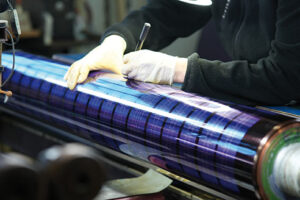 “We are in a sector characterized by its nature by strong work peaks; therefore, we believe it is necessary to keep up with technology and above all automation. Our engraving systems work unattended even at night, and in the event of a downtime, the system can move the workload to the next line, without ever stopping. This is the least we can do if we want to be competitive today both on the Italian and foreign markets, where we manage to be present above all in niche markets such as that of security papers, or aluminum embossing for food applications such as paper for butter, for chocolate, coffee capsules. Our ability to serve all gravure applications has allowed us to maintain a good level of productivity and turnover, even in a not particularly happy year like 2023. And the laser investment goes precisely in the direction of being able to be present in every application sector, with a high-performance technology capable of combining quality and speed in production”, concludes Gianmatteo.
“We are in a sector characterized by its nature by strong work peaks; therefore, we believe it is necessary to keep up with technology and above all automation. Our engraving systems work unattended even at night, and in the event of a downtime, the system can move the workload to the next line, without ever stopping. This is the least we can do if we want to be competitive today both on the Italian and foreign markets, where we manage to be present above all in niche markets such as that of security papers, or aluminum embossing for food applications such as paper for butter, for chocolate, coffee capsules. Our ability to serve all gravure applications has allowed us to maintain a good level of productivity and turnover, even in a not particularly happy year like 2023. And the laser investment goes precisely in the direction of being able to be present in every application sector, with a high-performance technology capable of combining quality and speed in production”, concludes Gianmatteo.
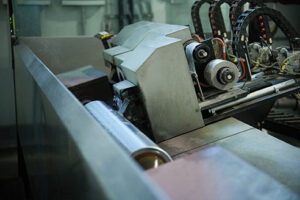
Finally, it is right to remember that ICR has always been a point of reference for the entire printing industry, including schools for training courses, which here find company and qualified personnel to be able to carry out tests for example on inks, tests on innovative, recyclable and compostable materials.





